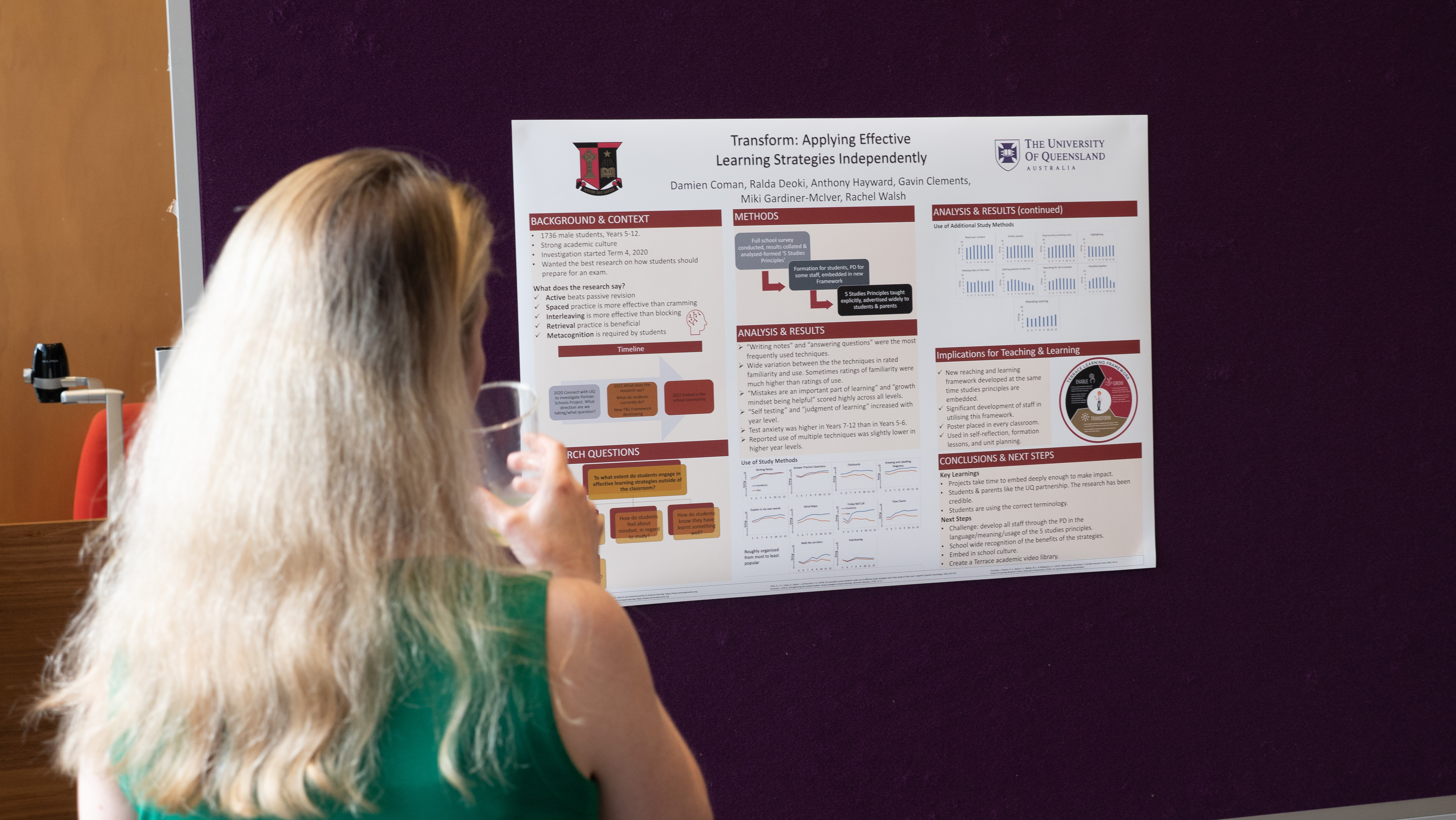From Research to Practice and Back Again
UQ Learning Lab Symposium 2024
The University of Queensland Learning Lab hosted its Annual Symposium on Friday, November 22, bringing together researchers, educators, and industry leaders to explore how evidence-informed insights can shape—and be shaped by—real-world learning environments. The day featured thought-provoking presentations on adolescent brain development, self-regulated learning, student wellbeing, and workplace learning, as well as sessions showcasing innovative school and industry partnerships and practical strategies for mobilising research insights into practice. Through dynamic discussion and collaboration, attendees examined how research and practice can inform one another to drive innovation in learning, teaching, and training.
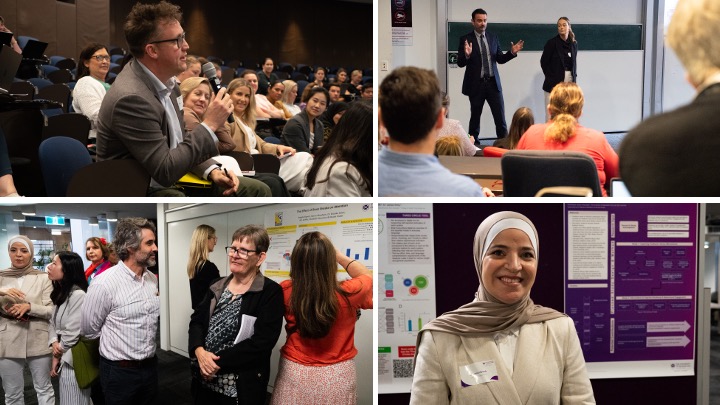
Session One Highlights — One Small Step: Research Led by Reality
Session One brought together leading researchers to explore how adolescent development, wellbeing, and self-regulation shape learning. Dr Imogen Stead shared insights from a large-scale neuroimaging study, revealing how cognitive functions like inhibitory control and decision-making continue to mature through adolescence. Professor Paul Dux presented findings from a longitudinal study with partner schools, showing that students’ metacognitive and emotion regulation skills are strong predictors of academic wellbeing. Dr Shyam Barr rounded out the session with practical strategies for embedding self-regulated learning in everyday classroom practice, bridging the gap between research and implementation.
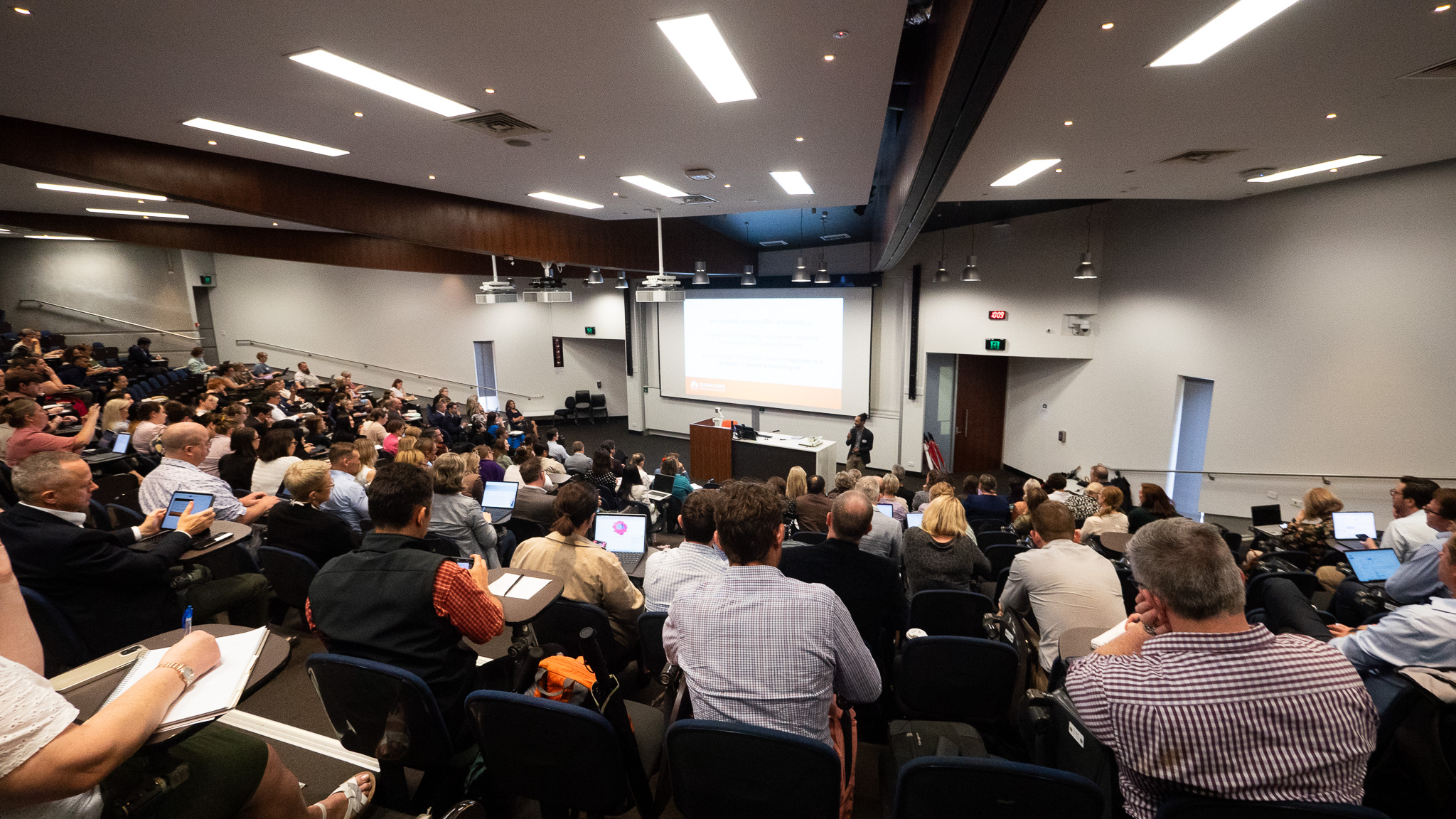
Session Two Highlights — Partner Schools Presentations: Research in the Real World
Educators from our Partner Schools shared findings from their year-long, research-informed projects. These sessions offered a valuable window into how teachers are applying the Science of Learning into practice in their unique contexts—testing new strategies, gathering data, and reflecting on outcomes. From exploring the role of student agency and curiosity, to investigating the impact of brain breaks, learner attributes, and teacher buoyancy, the projects demonstrated the power of teacher-led inquiry and reinforced the importance of school–researcher partnerships in driving meaningful educational change.

Panel Discussion — Guiding future voyages
The day concluded with a lively panel discussion that brought together researchers, educators, and industry partners to reflect on the evolving relationship between research and practice. Panellists explored how to better facilitate the flow of knowledge between classrooms, universities, and workplaces; the role of educators and practitioners in shaping research questions; and the value of long-term, cross-sector partnerships. The conversation highlighted shared challenges and sparked fresh ideas for deepening collaboration, with a clear message: when researchers, educators, and industry work together, meaningful and sustainable change is possible.
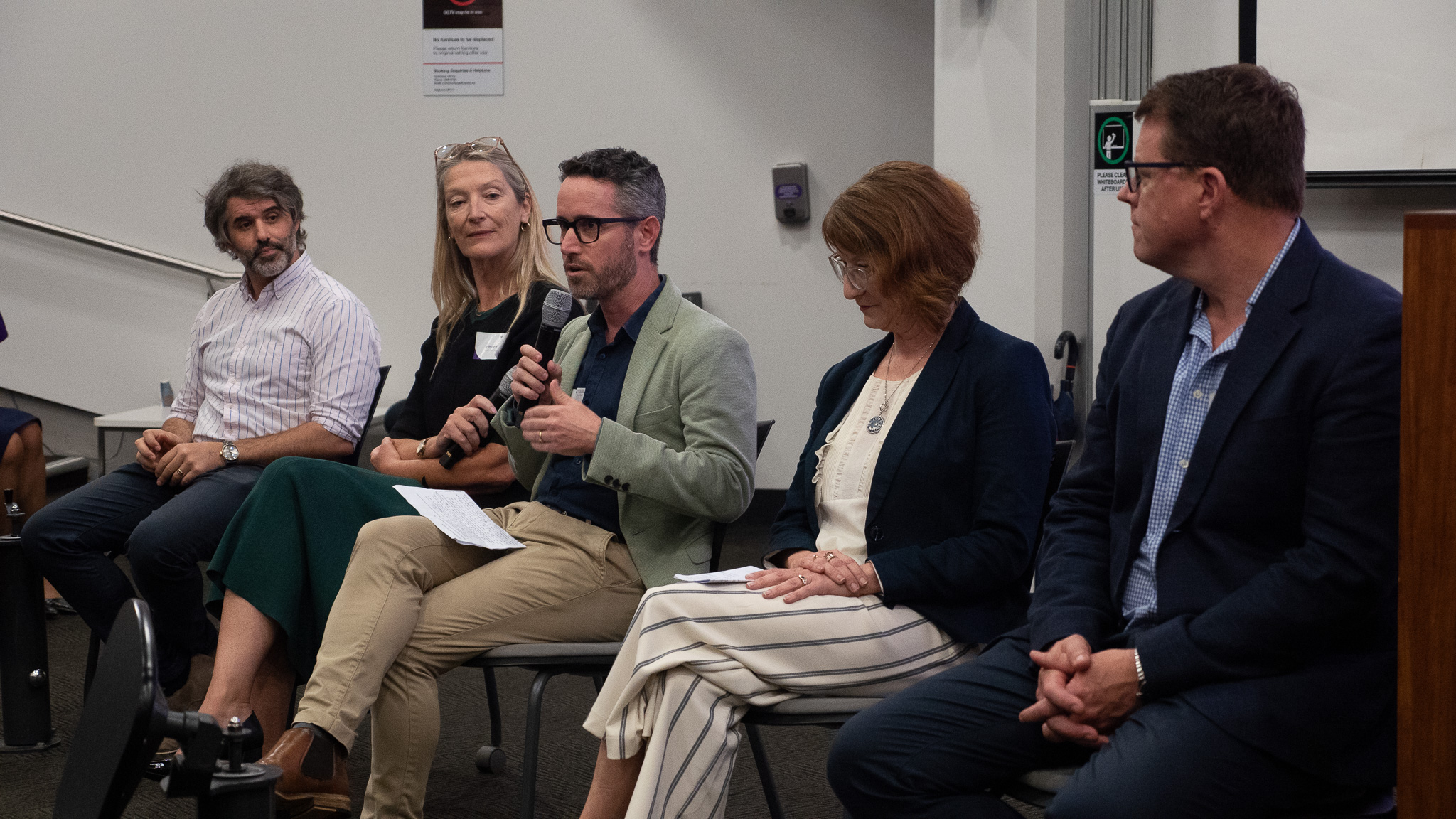
Student Posters
The posters presented at the symposium showcase a diverse range of research projects from members of the UQ Learning Lab, including higher degree research (HDR) PhD students and a lab winter scholar. These projects explore students’ study strategies, feedback engagement, emotional experience, and workplace mentoring, reflecting the breadth of research in the UQ Learning Lab.
- Dylan Moloney-Gibb: The three circles: A highly adaptive tool for capturing emotional experience in the real world
- Jonathan Brazil: What do students want in a study strategy intervention?
- Jumana Ayoub: Feedback Literacy in Focus: Exploring the Emotional and Behavioural Engagement of Pre-Service Teachers in Human and AI Interactions
- Tomas Smith: Mentoring in the Workplace: An Initial Review of Literature

Partner Schools Posters
The Partner Schools posters highlight a range of student- and teacher-focused research projects, exploring topics such as motivation, curiosity, wellbeing, self-regulated learning, metacognitive strategies, and academic buoyancy. These projects reflect the ongoing collaboration between UQ Learning Lab and its Partner Schools to investigate real-world learning practices and support student engagement through evidence-informed approaches.
- Balmoral State High School: Student Motivation to Use AI
- Centenary State High School: The Effect of Brain Breaks on Attention
- Pacific Lutheran College: What metacognitive strategies do students employ at the point of productive struggle?
- Ravenswood School for Girls: Cultivating Curious Classrooms
- St Aidan's Anglican Girls School: St Aidan’s Learning Framework
- St Catherine's School: Teaching for Wellbeing
- St John's Anglican College: Do Schools Kill Curiosity?
- St Joseph's College Gregory Terrace: Teacher Buoyancy
- St Peters Lutheran College, Springfield: What we grow here...
- Trinity Grammar School: An Investigation into What Students in P-12 Know About Self-Regulated Learning
- Westbourne Anglican College: Academic Buoyancy and Student Agency
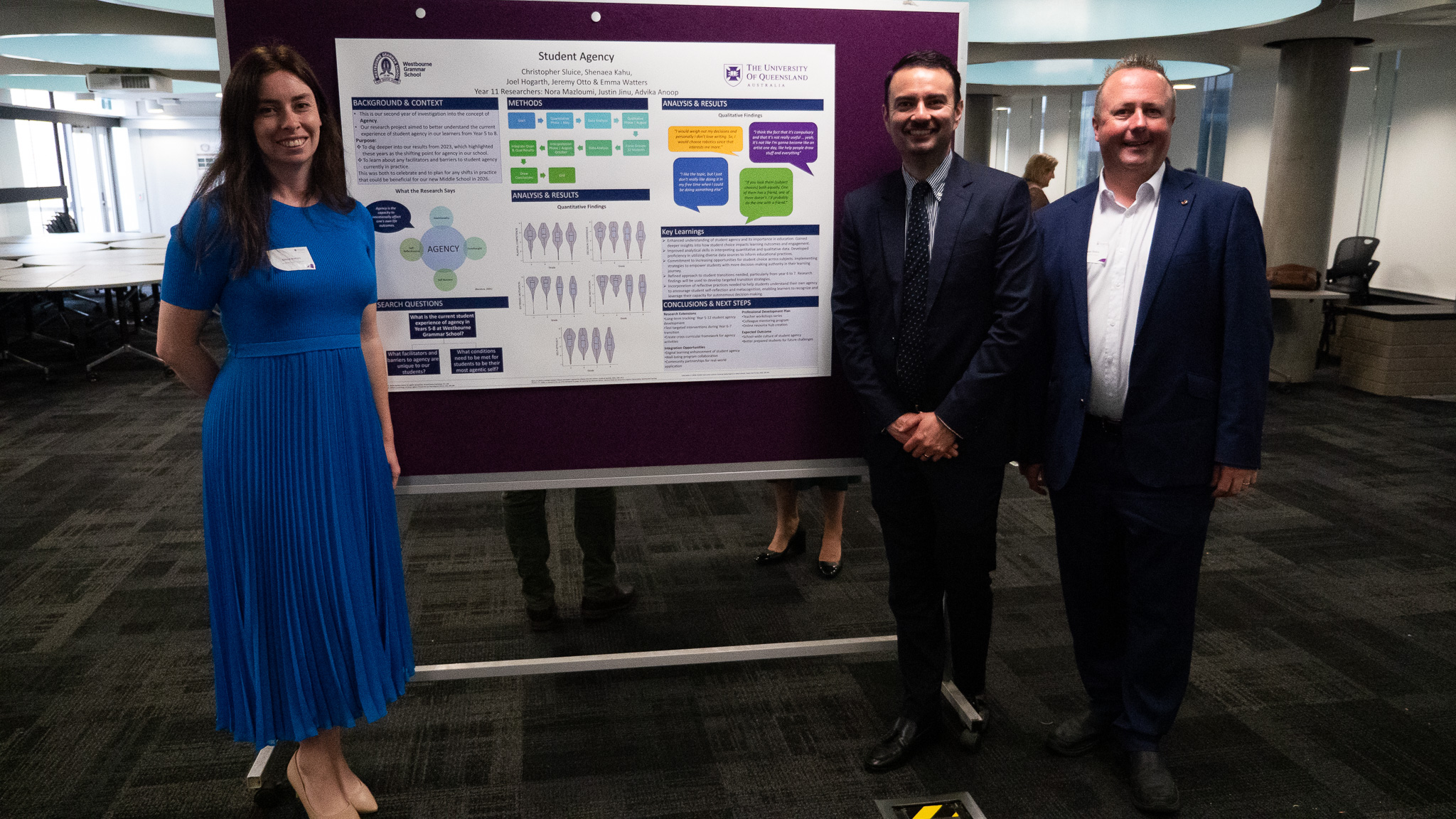
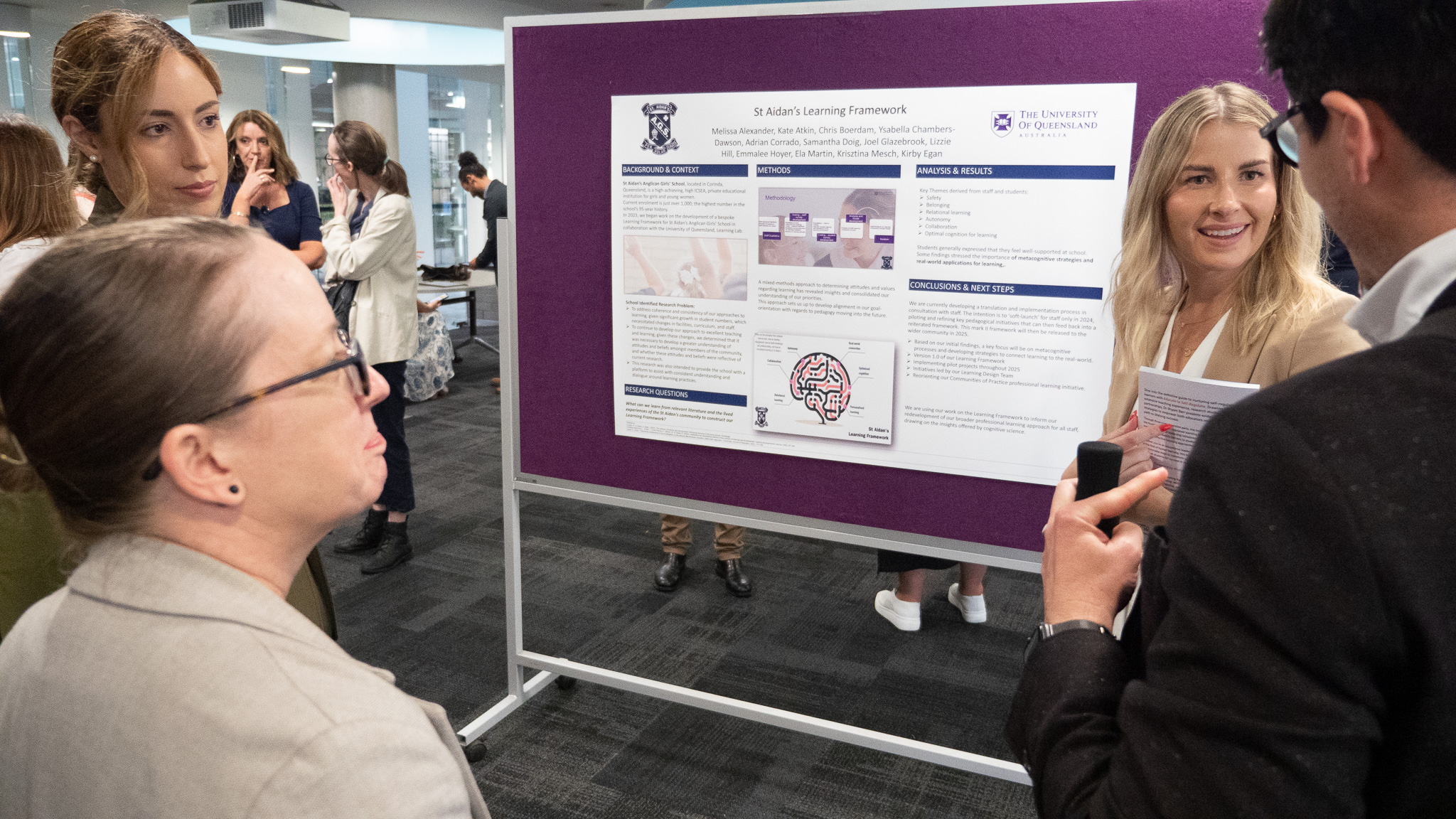
Designing the Future of Learning
UQ Learning Lab Symposium 2023
The University of Queensland Learning Lab held its Annual Symposium on Friday, November 10, bringing together a dynamic blend of multi-disciplinary researchers, learning leaders, industry partners, and the wider community to share insights and celebrate the transformative power of collaborative research partnerships. The day featured an exciting lineup of presentations, panel discussions, demonstration sessions and poster sessions, highlighting the work of our industry and school partners, as well as our own multi-disciplinary research team. Attendees had the opportunity to learn about real-world, industry-identified issues and explore unique perspectives, ideas, and initiatives aimed at bridging scientific research with practical application.
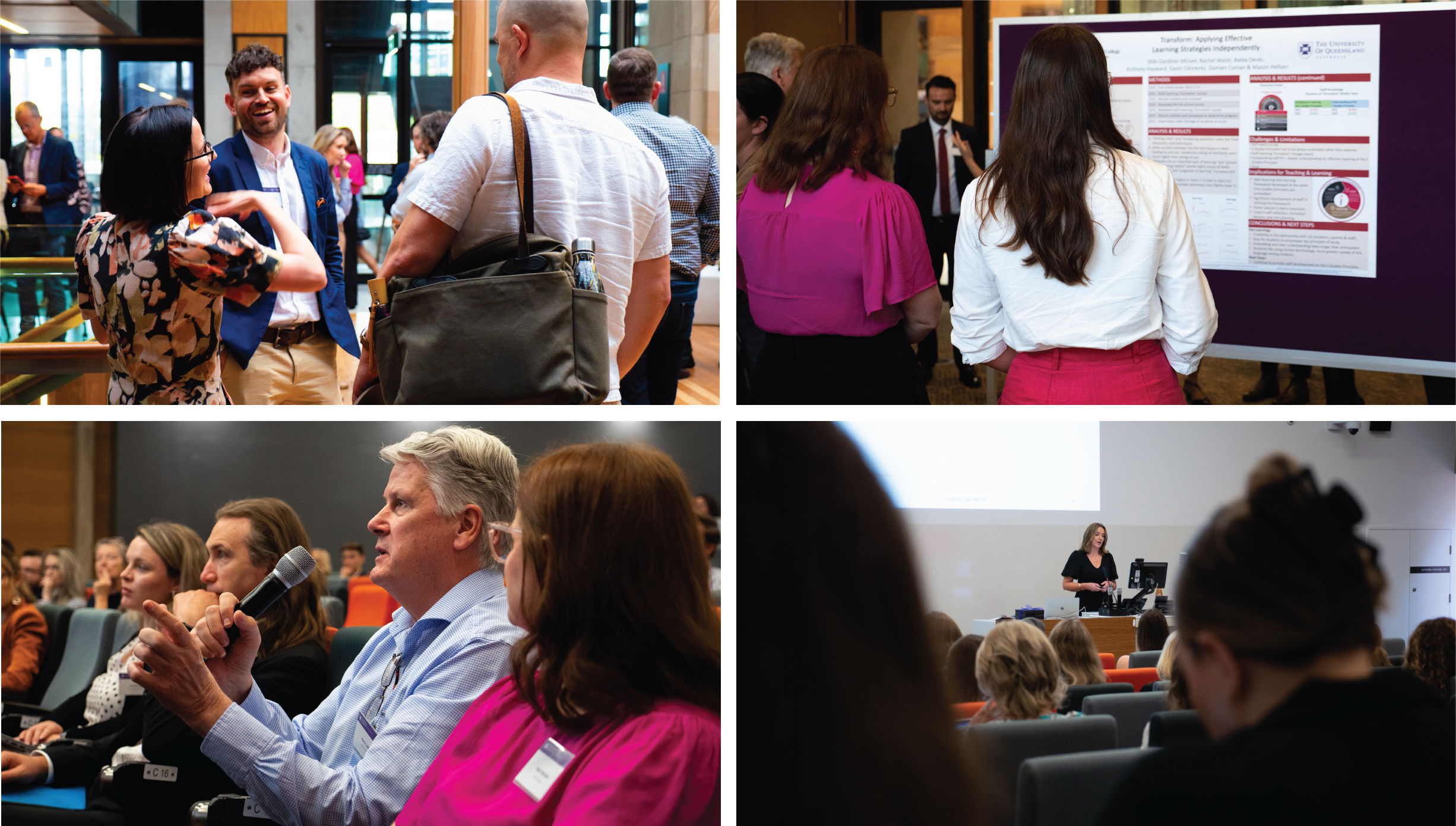
Program Highlights
Applying the Science of Learning to Today's Challenges:
Presentations by Professor Jason Mattingley, Dr Natasha Matthews, Associate Professor James Kirby, and Dr Stephanie MacMahon on topics ranging from brain imaging and virtual reality to self-regulation, compassion, and quality learning in the mining industry.
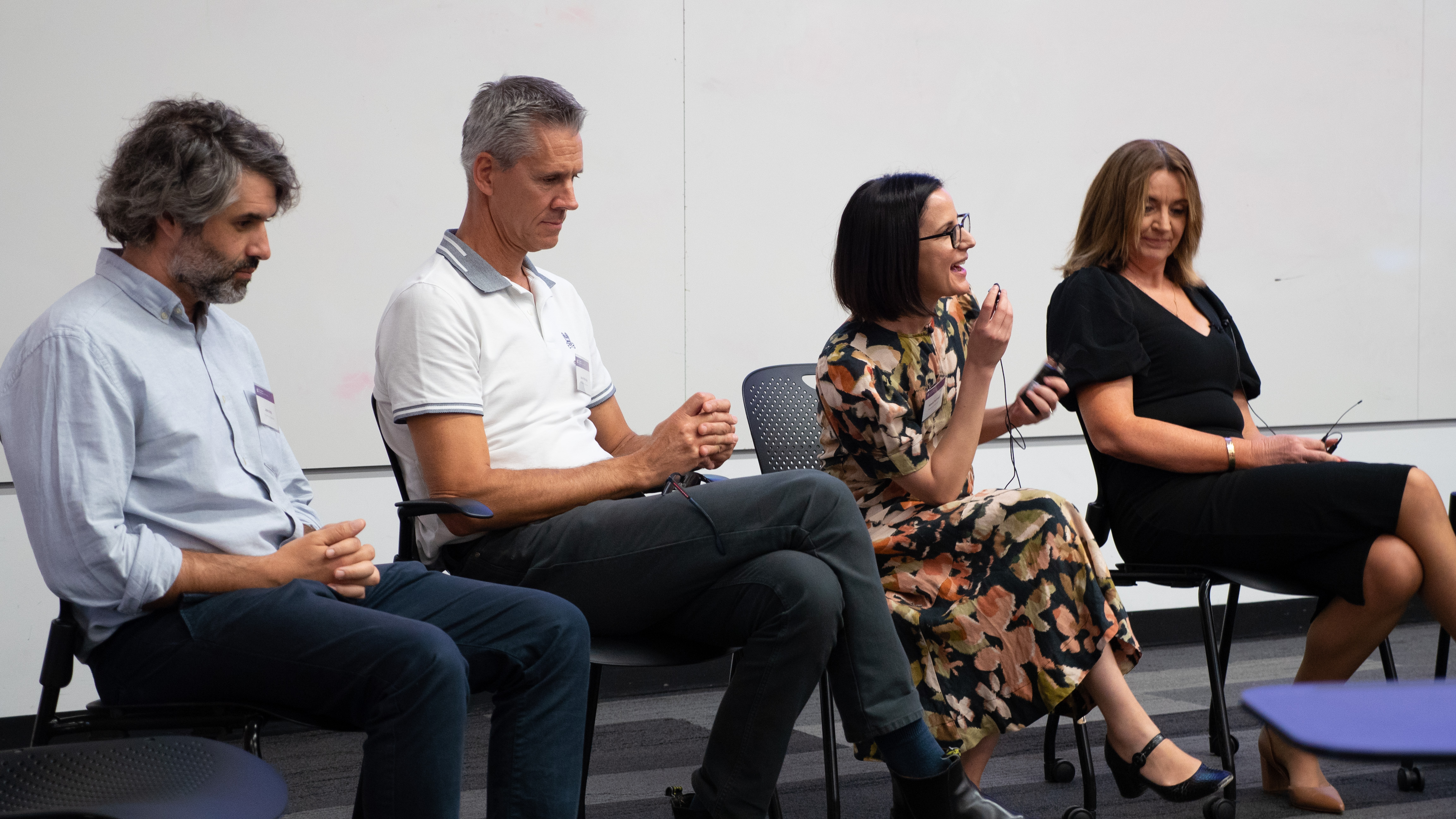
Building The Future: Research from the Partner Schools Program:
Showcasing research from our Partner Schools, including Canterbury College, Melbourne Girls Grammar School, Ravenswood School for Girls, St John's Anglican College, St Joseph's College Gregory Terrace, St Margaret's Anglican Girls School, St Rita's College, Wesley College, and Westbourne Grammar School. The presentations covered a wide range of topics, including investigating effective learning strategies, exploring cultures of curiosity, examining learning in context, and identifying opportunities to support professional learning.
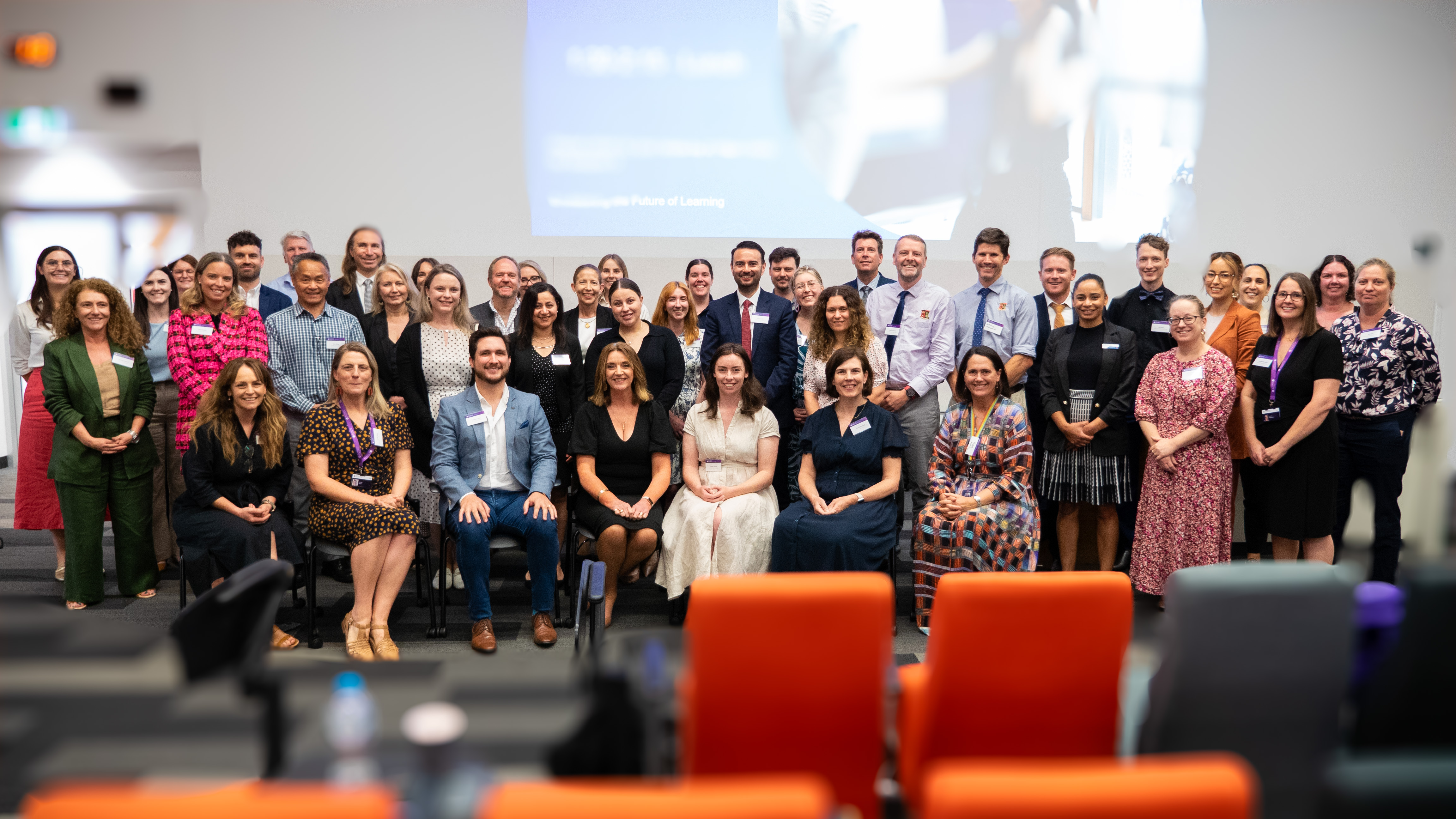
Envisioning the future of learning:
Talks by Dr Sasha Lynn, Dr Mari Farry, Dr Chase Sherwell, and Associate Professor Jason Lodge on the importance of social-emotional skills, integrating research methods into learning design, and the role of generative AI in education.
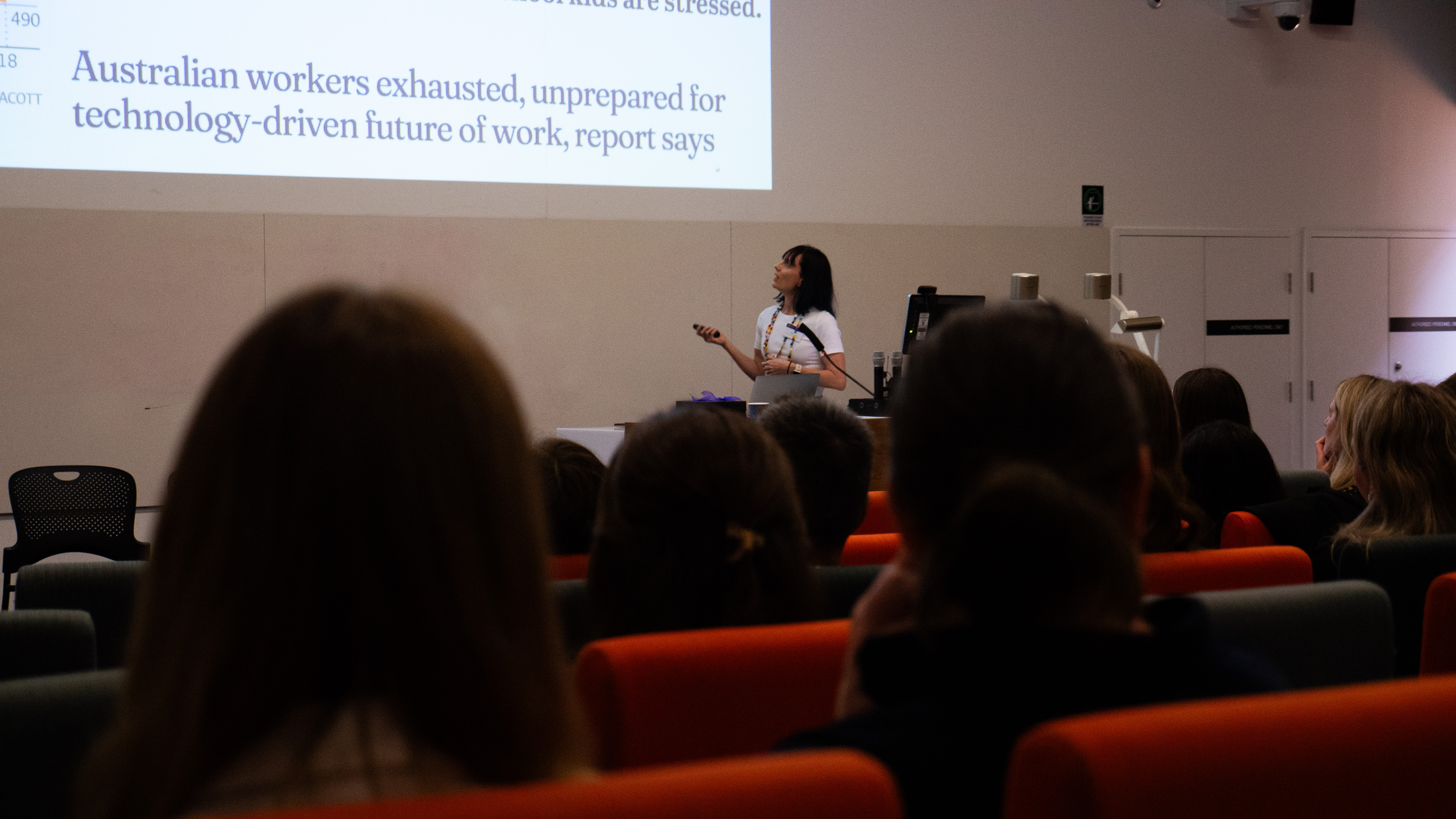
Panel Discussion: Hopes, Challenges, and Outlook for the Future of Learning:
A thought-provoking discussion with panelists Rodo De Boer (Thiess), Rohan Bates (Mater Education), Prof Robin Shields (Head of School of Education, UQ), A/Prof Jason Lodge (UQ Learning Lab), Jenna Cullen (Marsden State High School), and Andrew Landroth (St John's Anglican College), moderated by Dr Stephanie MacMahon (UQ Learning Lab).
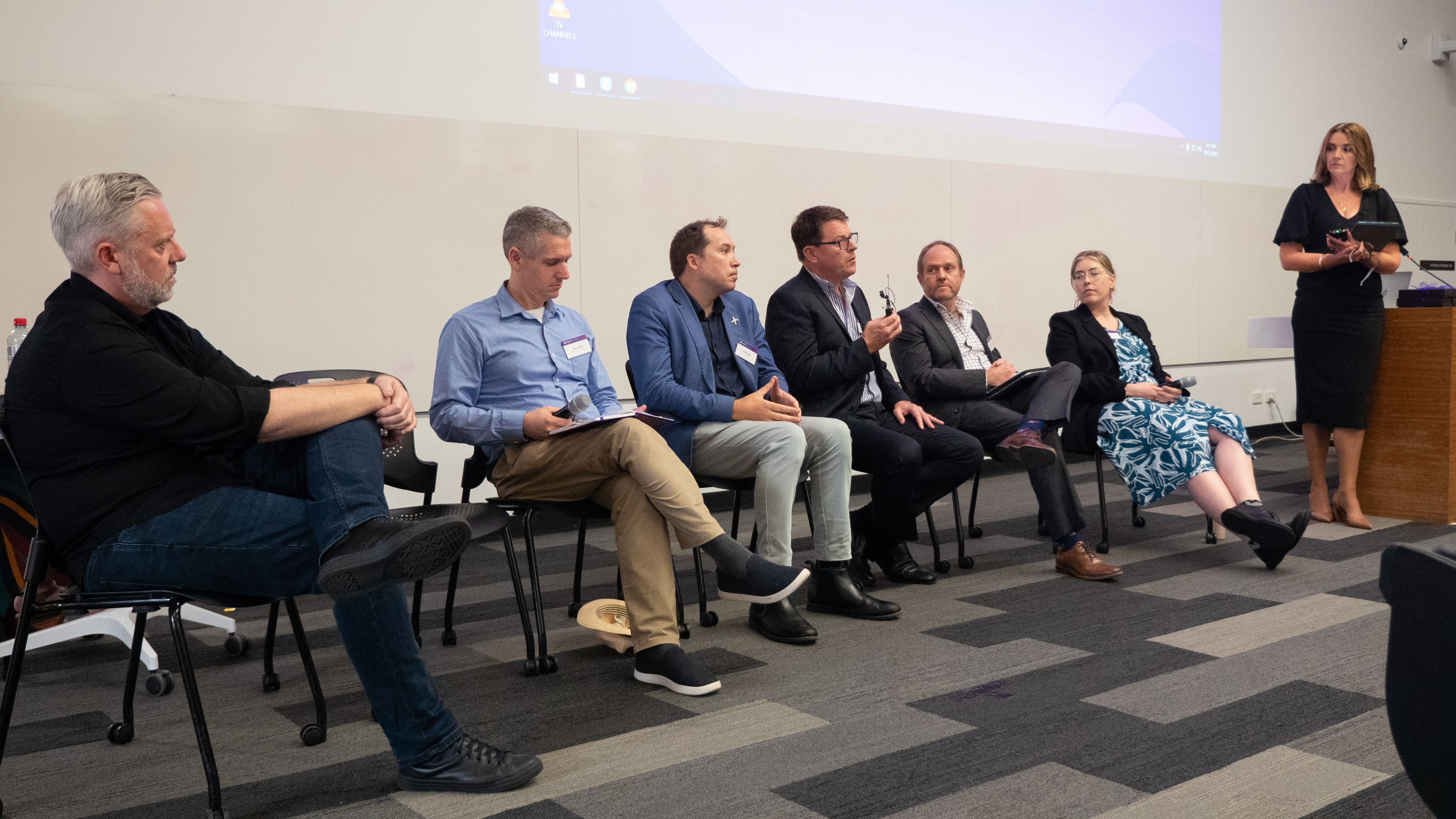
Higher Degree by Research Student Posters
The posters presented at the symposium showcase a diverse range of research projects from UQ Learning Lab's PhD students, covering topics such as understanding and supporting university students' study strategies, investigating the relationship between motivation and engagement during the transition to university, validating a novel emotion-focused app, conducting a systematic review on family-school partnerships to improve student attendance, and evaluating a digital tool for scaffolding collaborative learning.
- Jonathan Brazil: Understanding and Supporting University Students' Use of Study Strategies
- Daniel Taylor-Griffiths: Does Motivation Predict (Dis)Engagement During Transition to Uni?
- Dylan Moloney-Gibb: The Three Circles App
- Tarissa Hidajat: Family-School Partnership Initiatives to Improve Student Attendance: A Systematic Review Protocol
- Suijing Yang: What Can We Do to Scaffold Students in Collaborative Learning?
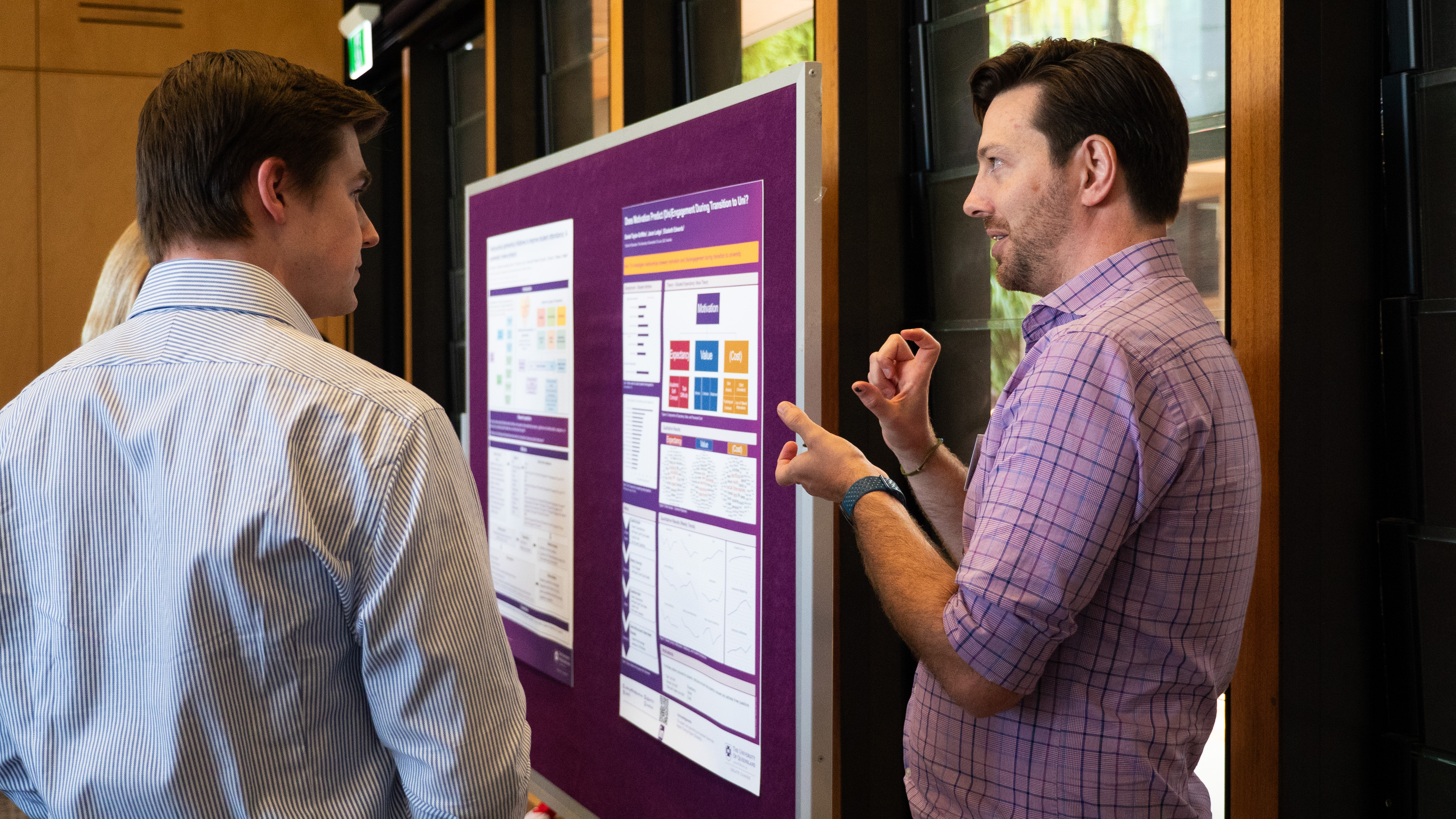
Partner Schools Posters
The Partner Schools posters showcase two research projects investigating the factors that influence curiosity in the learning environment and the extent to which students engage in effective learning strategies outside the classroom. Both studies employ mixed-methods approaches, involving surveys and interviews with students and staff, to gain insights into these critical aspects of learning. These posters demonstrate the commitment of UQ Learning Lab's Partner Schools to investigating and improving learning outcomes for their students through evidence-based practices and collaboration with researchers.
- St John's Anglican College: Do Schools Kill Curiosity?
- St Joseph's College Gregory Terrace: Transform: Applying Effective Learning Strategies Independently
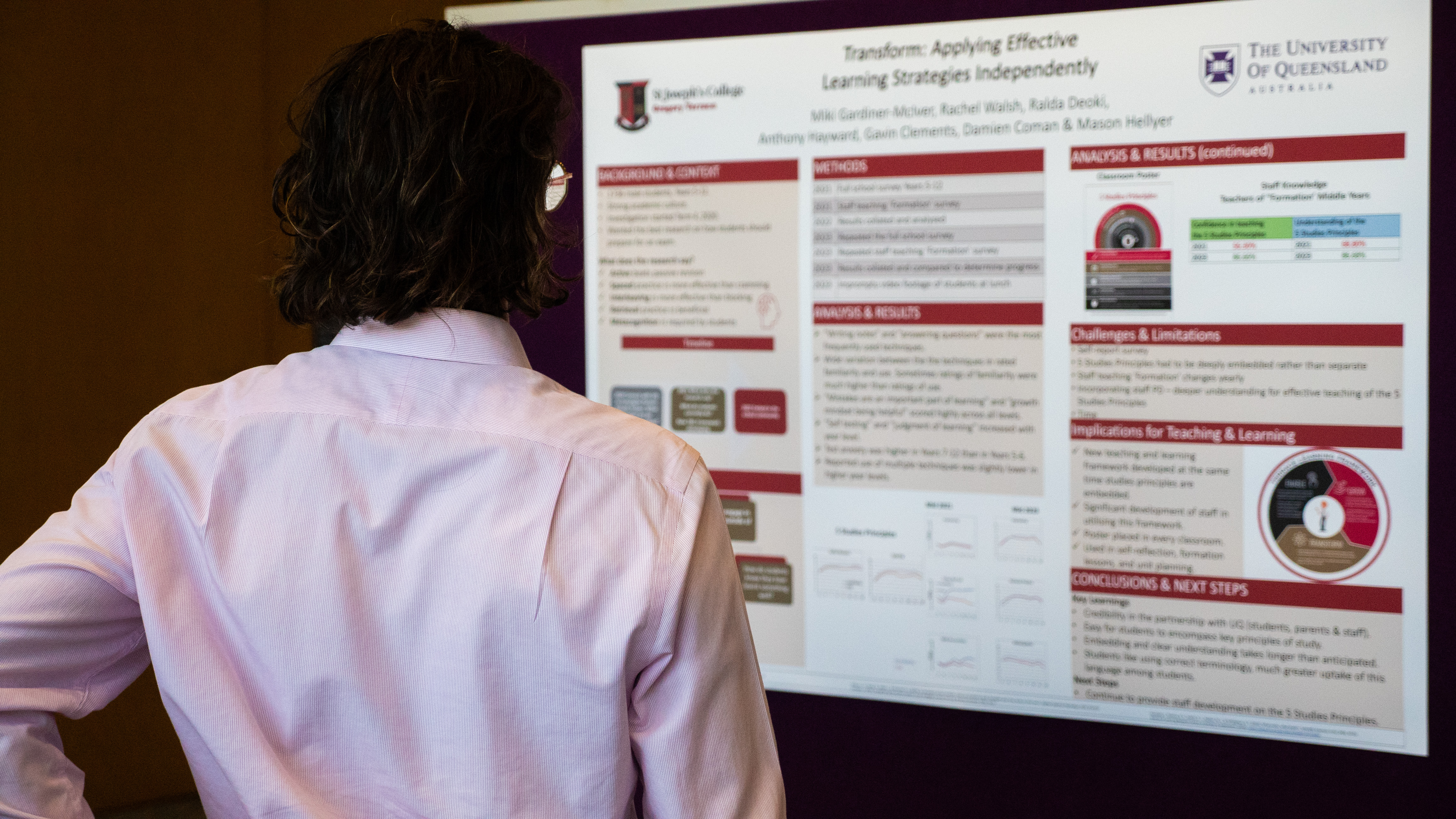
Partnering for Transformation
UQ Learning Lab Symposium 2022
The 2022 UQ Learning Lab Symposium, held at the University of Queensland, brought together multi-disciplinary researchers, industry partners, and educators to share insights and collaborate on transforming learning, teaching, and training practices. The symposium featured a range of engaging presentations and panel discussions.

Program Highlights
- Stories from our Multi-Disciplinary Researchers: Presentations on characterising brain and cognitive changes throughout adolescence, the development of metacognition, connecting social-emotional learning theory and practice, and building teacher efficacy through the Partner Schools Program.
- Stories from our Partner Schools Program: Representatives from Ravenswood School for Girls, Melbourne Girls Grammar School, Wesley College, Canterbury College, Cannon Hill Anglican College, Brisbane State High School, St Joseph's College Gregory Terrace, and Goulburn Valley Grammar School shared their experiences in knowledge production, use, and mediation.
- Stories from our Research-Industry Partnerships: Showcasing collaborations between the UQ Learning Lab and the Resources Training Council, Mater Education, and the University of Queensland, focusing on understanding and transforming training in the mining sector, real-time evaluation of simulation training for clinicians, and the Higher Education Learning Framework (HELF) 2.0.
- Panel Discussion: Transforming the Science of Learning into Action: An insightful discussion featuring panelists from the Resources Training Council, Mater Education, Independent Schools Queensland, Brisbane State High School, and the UQ Learning Lab.
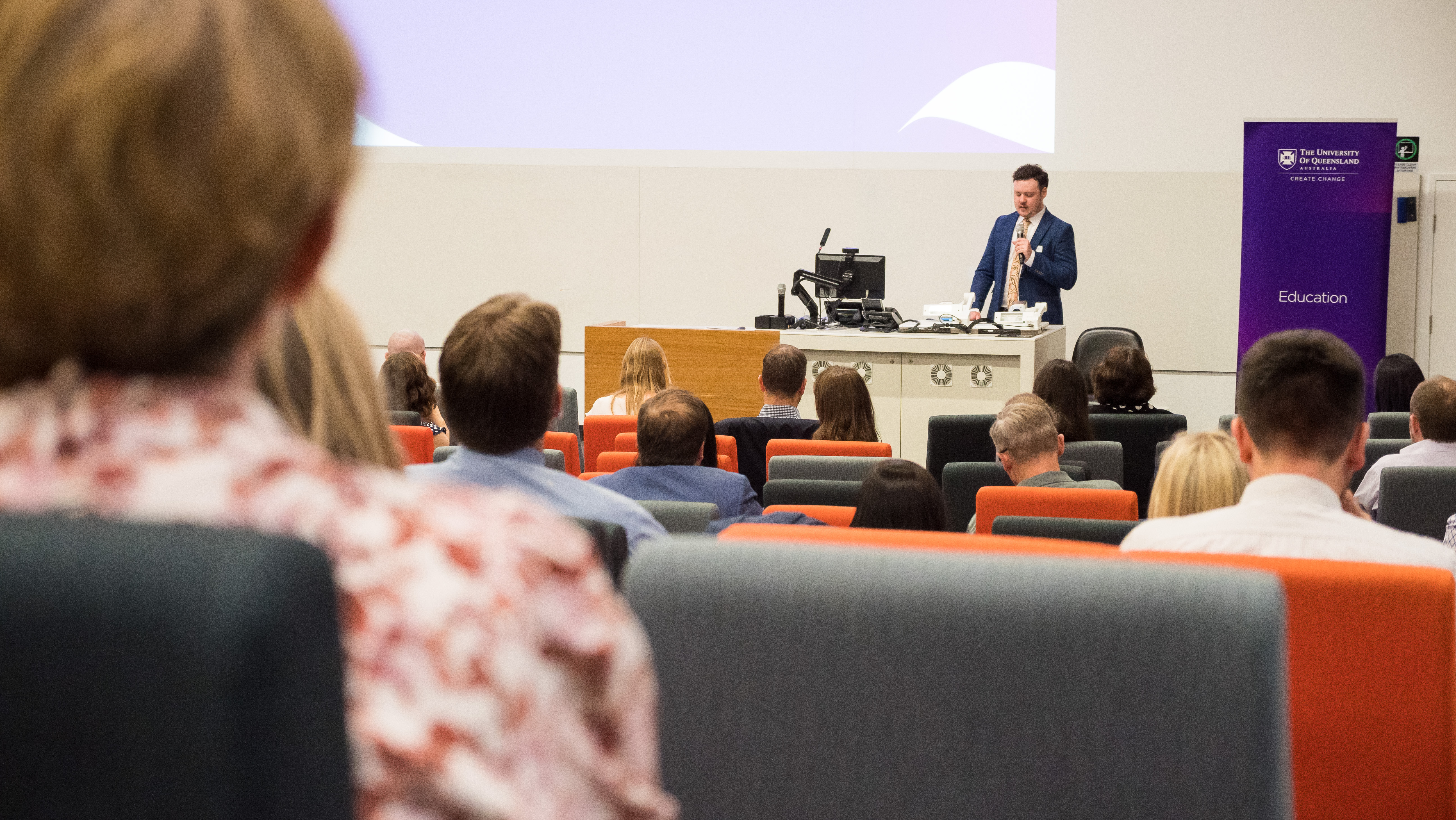
Higher Degree by Research Student Posters
- Kali Chidley: Meta-Attention Knowledge Questionnaire (MAK-Q)
- Jennifer Levitt: Learner Agency: Developing a profile of learners' agentic resources
- Dylan Moloney-Gibb: Testing a new digital approach to measuring emotion systems: The Three Circles App for adolescents
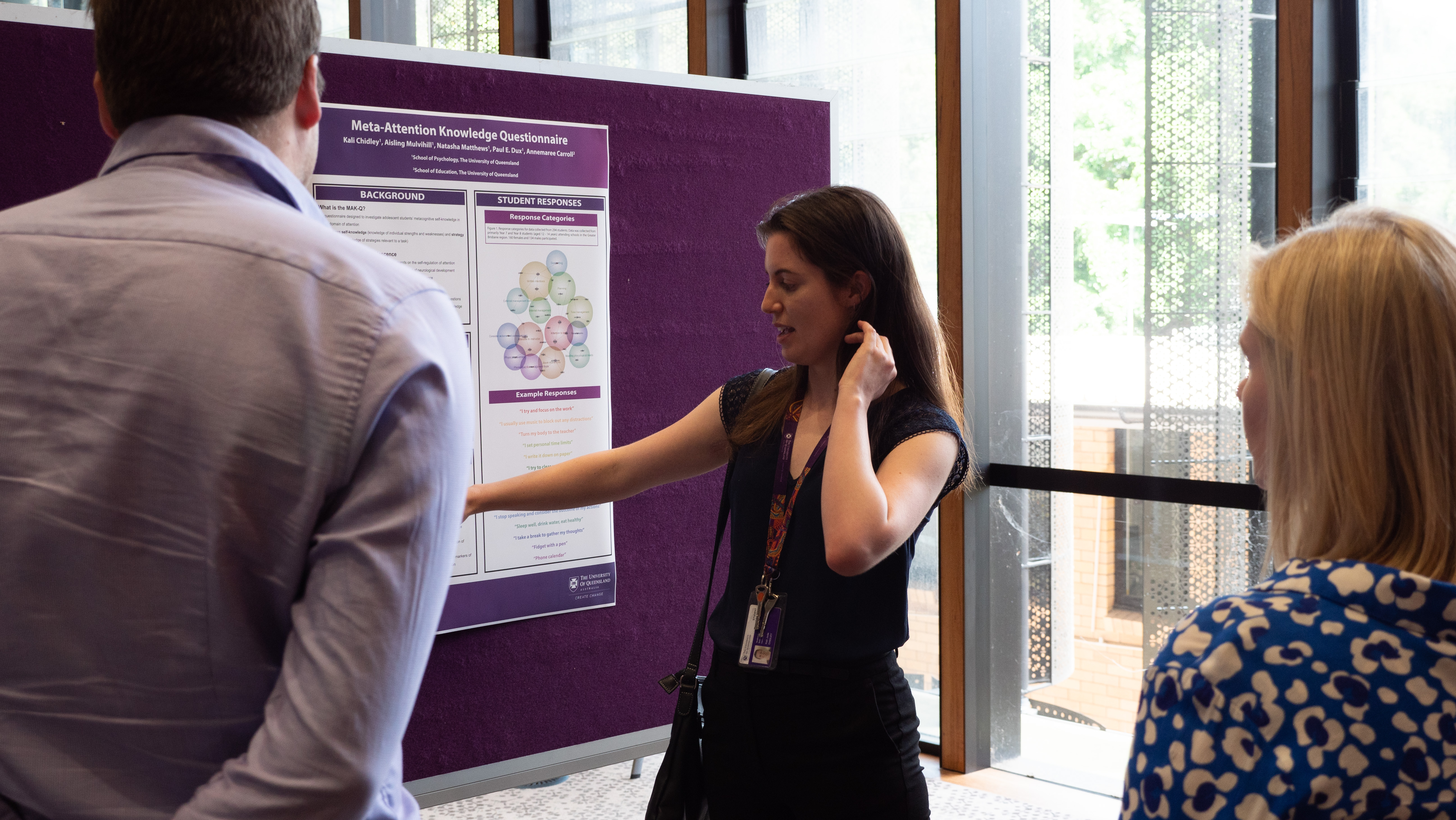
Partner Schools Posters
- Canterbury College: The Learner's Toolkit and the Canterbury Way
- Melbourne Girls Grammar School: Learning Strategies at Melbourne Girls Grammar School
- Ravenswood School for Girls: Fostering a Curious Mindset
- St Joseph's College Gregory Terrace: Transform: Applying Effective Learning Strategies Independently
- Wesley College: Student Perceptions of Safety, Belonging & Engagement at Wesley College
